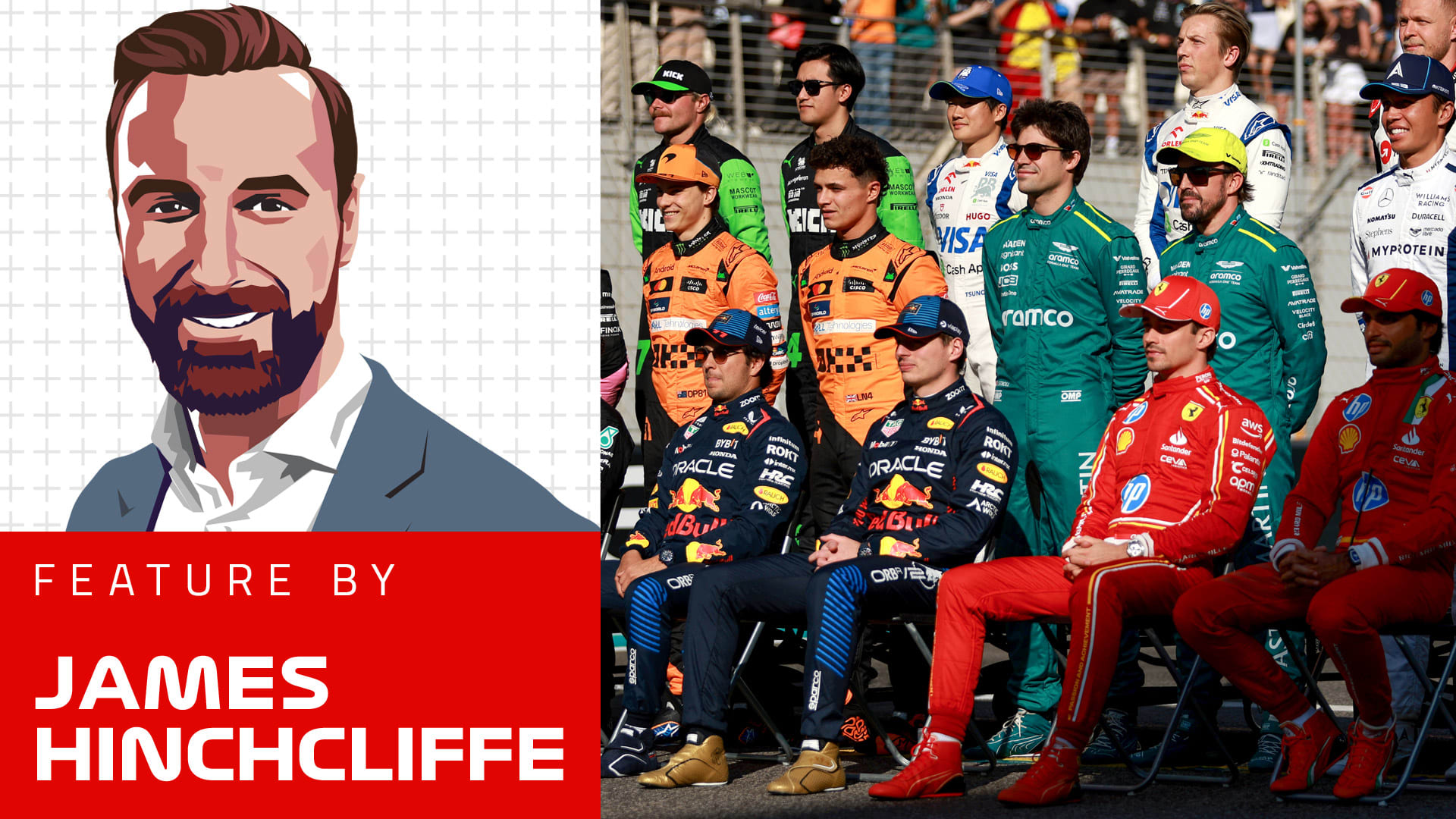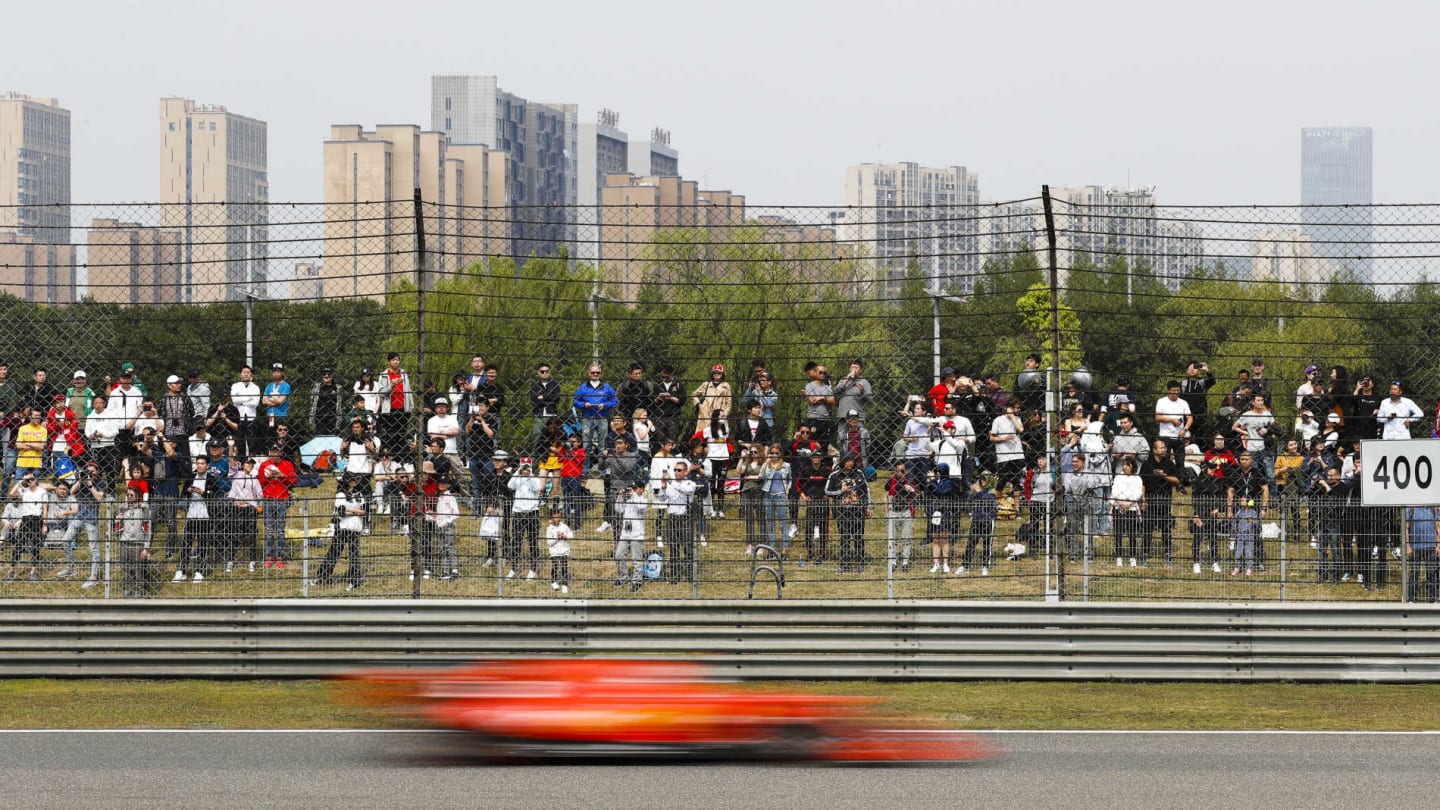
Feature
What To Watch For in the 2019 Chinese Grand Prix

Share

From the early championship leader on pole to a symmetrical front five rows that have the potential to cause friction, and from less than clear strategic options to a team carrying a big threat from P11, we highlight five topics to keep an eye out for in Shanghai…
BOTTAS 1.0 or 2.0?
Which version of Mercedes’ championship-leading driver will show up on race day in China?
When Valtteri Bottas eased to victory at the Australian Grand Prix – quickly moving on from his winless 2018 – we heralded the arrival of Bottas 2.0. But Bahrain was not an easy weekend for the Finn, and he only retains a slender drivers’ championship lead courtesy of his fastest lap point in Melbourne.
As qualifying progressed, the pressure cranked up on Bottas as he saw his advantage over Lewis Hamilton reduced to just 0.007s with one run to go in Q3. But he delivered when his team mate didn’t to secure pole.
With Hamilton alongside him on the grid and quick Ferraris behind, will we see the Bottas from Melbourne or Bottas from Bahrain?
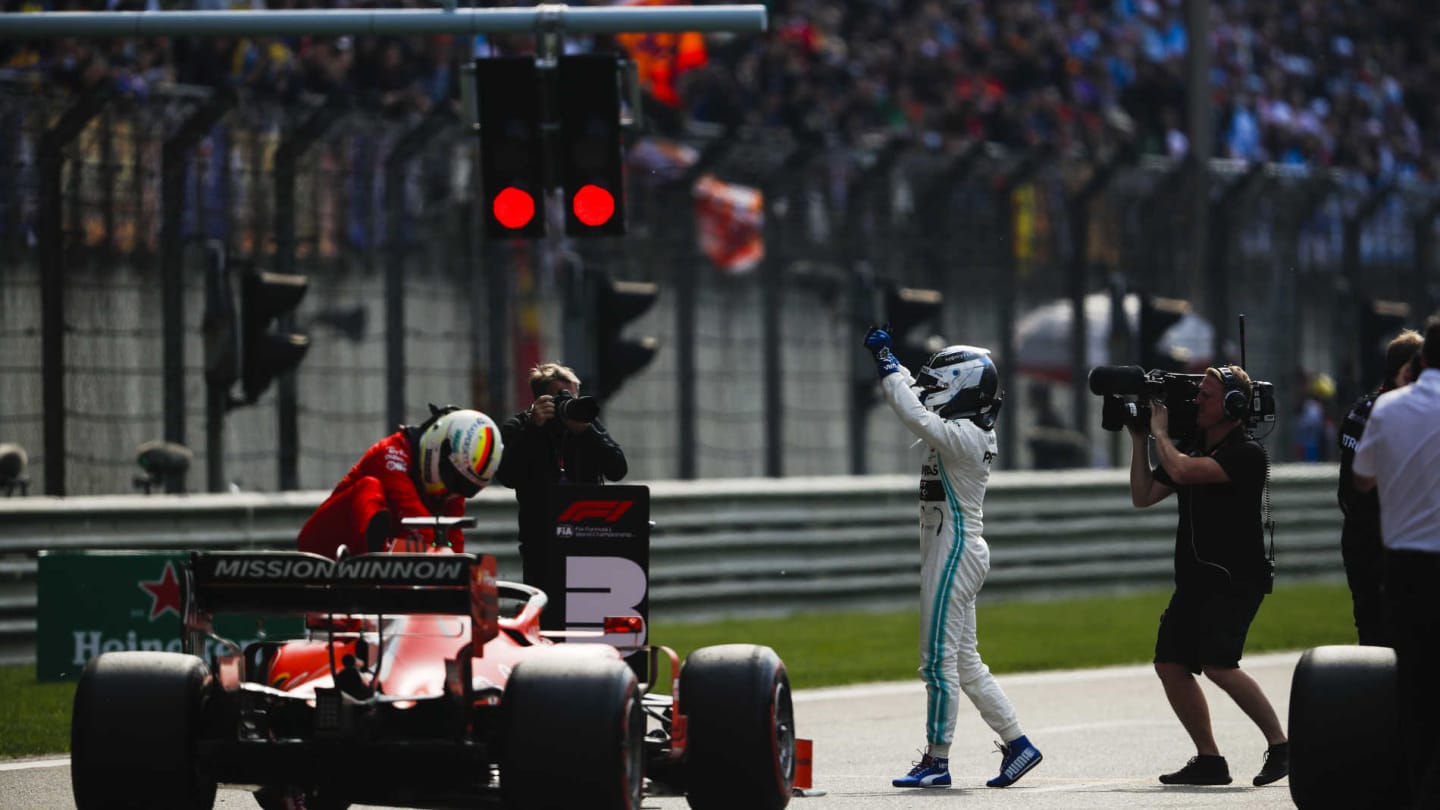
Excitement in the first corner sequence
Which team bosses will be the most relieved after Turn 1?
The start of any race is crucial, and Turn 1 at the Shanghai International Circuit certainly provides the op-portunity for incidents given the ongoing right-hander that constantly tightens.
As one of the newer circuits on the Formula 1 calendar, the track is plenty wide enough for a driver to make ground but the team bosses will be sitting uncomfortably given the make-up of the front of the grid.
It’s a two-by-two affair as Mercedes locked out the front row, followed by Ferrari on row two, Red Bull on row three, Renault on row four and then the Haas drivers in ninth and tenth. When the best strategy often goes to the lead car on track, drivers will be keen to get ahead of their team mates on the run to Turn 1, and will be faced with the even tougher task of trying to make up positions but giving the other car enough space in order to not break one of the golden rules of F1…

Slipstream heaven
Will the 2019 Chinese Grand Prix be a DRS-fest?
Turn 1 is more likely to see plenty of action, but it’s not the only place to make up positions on the opening lap in China.
There are 13 turns to negotiate first, but the long back straight – 1.2 kilometres long, to be precise – provides a massive opportunity to pick up a slipstream and make a move into the Turn 14 hairpin.
With Ferrari having enjoyed a clear straight line speed advantage during the last race in Bahrain, Mercedes will be aware of the threat both Sebastian Vettel and Charles Leclerc pose if the pair can stay close on that first lap.
The further back you are in the field, the greater the slipstream effect from the cars ahead, so there’s bound to be action towards the end of the opening lap.
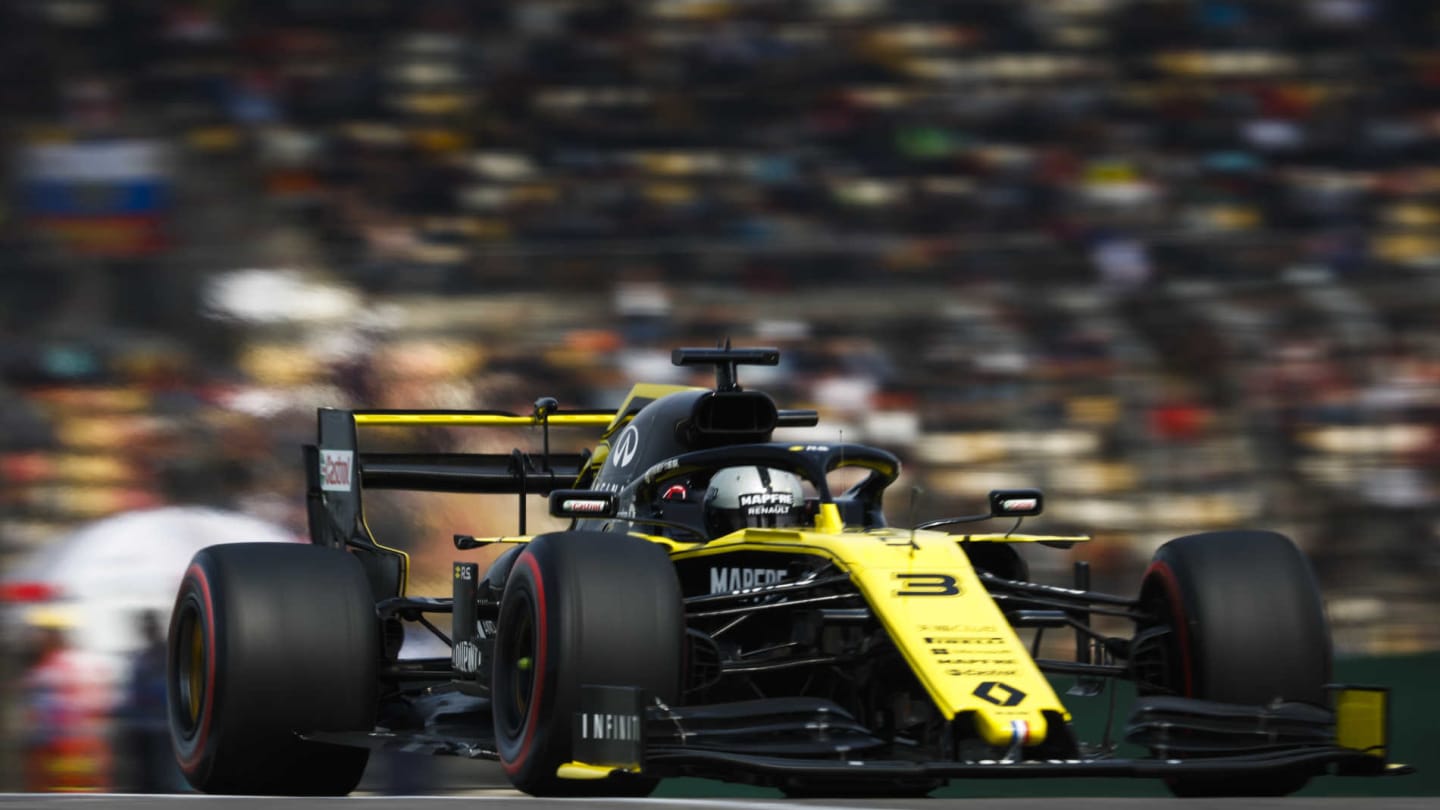
Strategic headaches
What’s the winning tyre strategy for Shanghai?
Pirelli has given the teams a challenge in Shanghai with the soft tyre, with the top five drivers all reaching Q3 on the medium in order to start on the more robust compound. Long right-hand corners at Turn 1 and Turn 13 put a lot of stress through the front left, while there are some big traction zones too.
Based on the running so far this weekend, it is an extremely close choice between a one- and two-stop race. At present, Pirelli suggest a one-stop using the hard tyre is the quickest way to the finish, but due to the tyre management needed for that strategy, two stints on the soft before switching to the hard is also a serious option.
The temperatures are forecast to be higher on race day than at any other point seen this weekend, and if that is the case then tyre life can also be reduced. If it is, then drivers starting on the soft tyre are more likely to two-stop, which can open up opportunities for those behind.
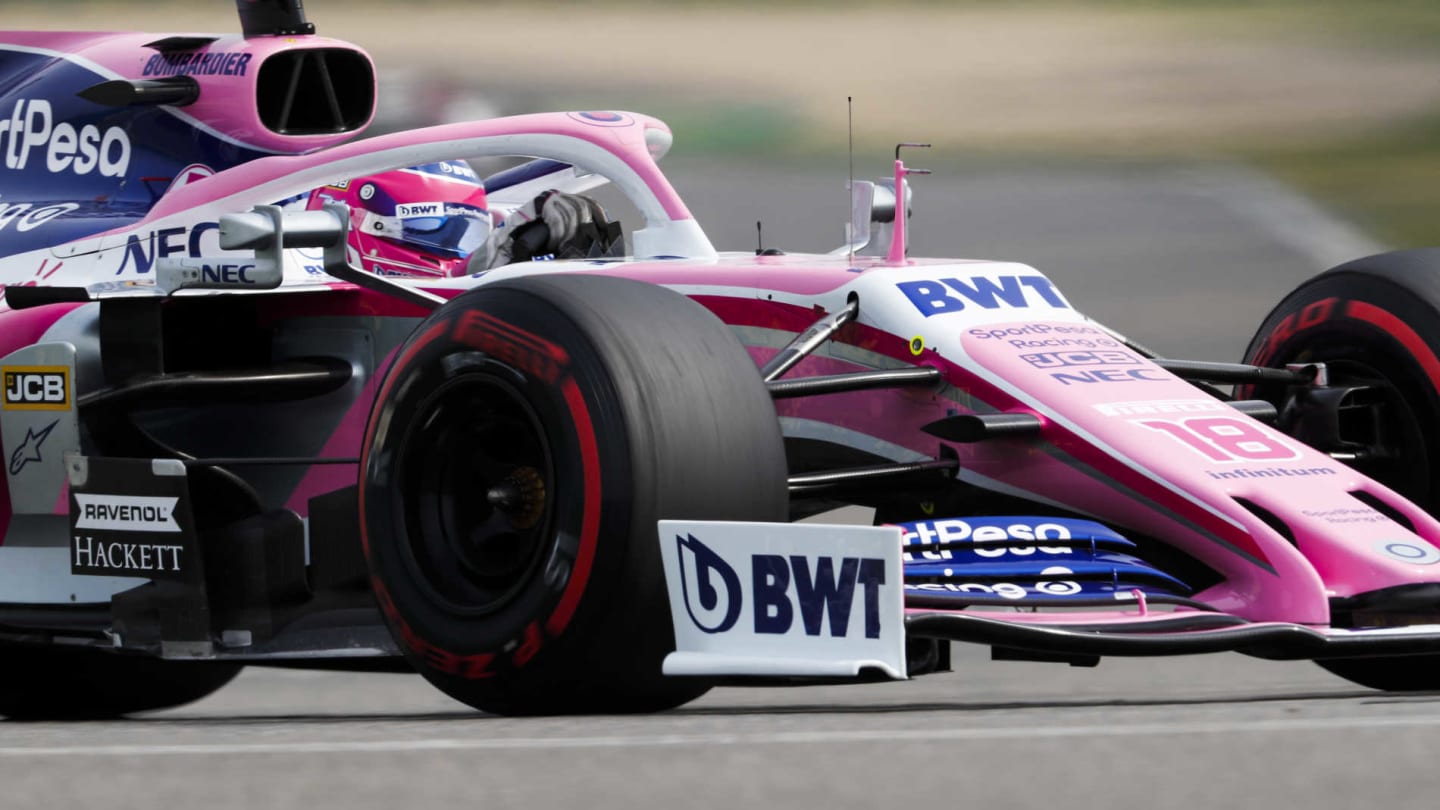
Toro Rosso well-placed
Could Toro Rosso have plenty to celebrate in their 250th Grand Prix?
The best-placed car to take advantage of those strategic options in the midfield is Daniil Kvyat. The Russian was not too disheartened to drop out in Q2 – only missing out on a spot in Q3 by 0.022s – because it means starting in 11th place and with a free choice of tyres.
The top five are all starting on the medium and the next five – more realistic targets for Kvyat – have to start the race on the softs. So Toro Rosso can pick from any of the three available compounds to start the race with the knowledge of what those ahead will have to do.
On Friday, Toro Rosso’s long run pace was remarkably impressive – second only to Mercedes by 0.2s per lap – and although Kvyat downplayed that data, it’s clear the car is quick. Even Alexander Albon is optimistic despite starting from the pit lane after his heavy FP3 crash…
“I think we showed our pace a bit in FP2,” Albon said. “I think the car’s really strong. I’m excited for the race. I think we can find something. Of course we’ll be starting from the pit lane, so we just need to shake up the strategy a bit, try to get past some cars and we’ll see. Maybe some Safety Cars will help”
Alexander Albon: We could've been in Q3 today
YOU MIGHT ALSO LIKE
TechnicalF1 Unlocked TECH WEEKLY: How Red Bull's two-year dominance came to a sudden end in 2024
Feature THE PALMERS: Jolyon Palmer picks his stand-out performers, best race and biggest surprise from the 2024 season
News Vasseur responds to Hamilton’s 'not fast anymore' concerns ahead of Ferrari arrival
Feature END OF YEAR REPORT: McLaren – A first constructors' title in 26 years, but can a drivers’ championship follow next year?
